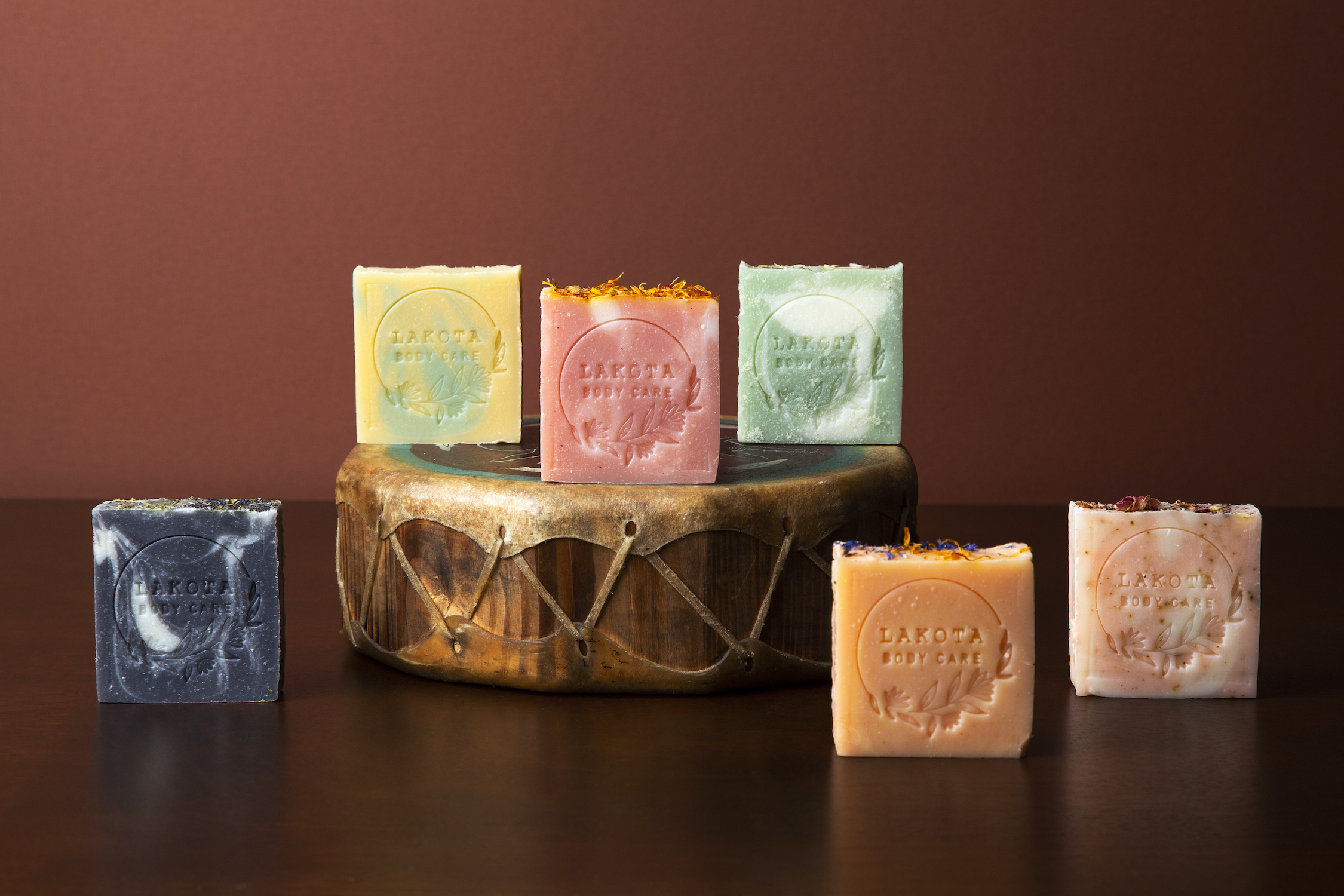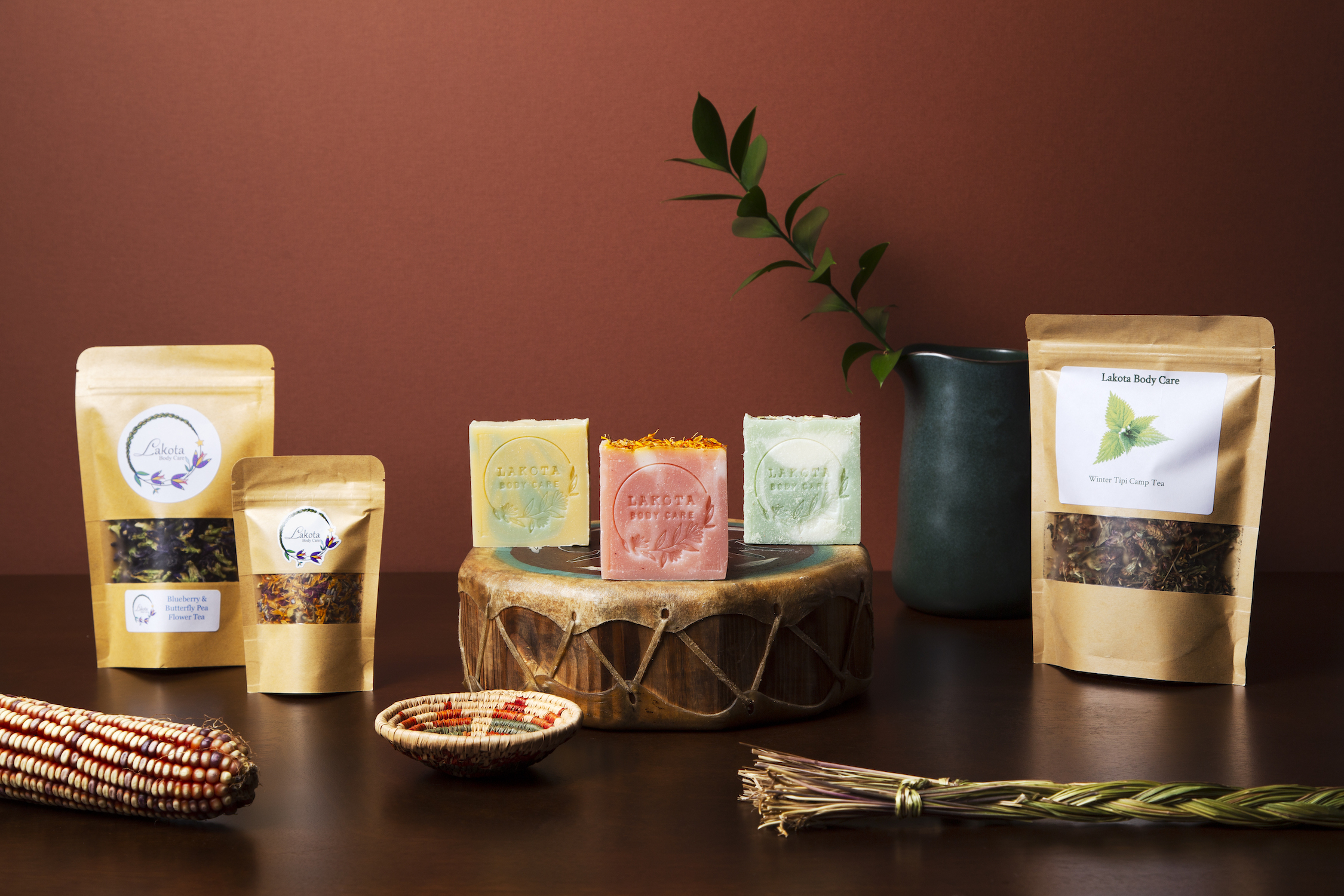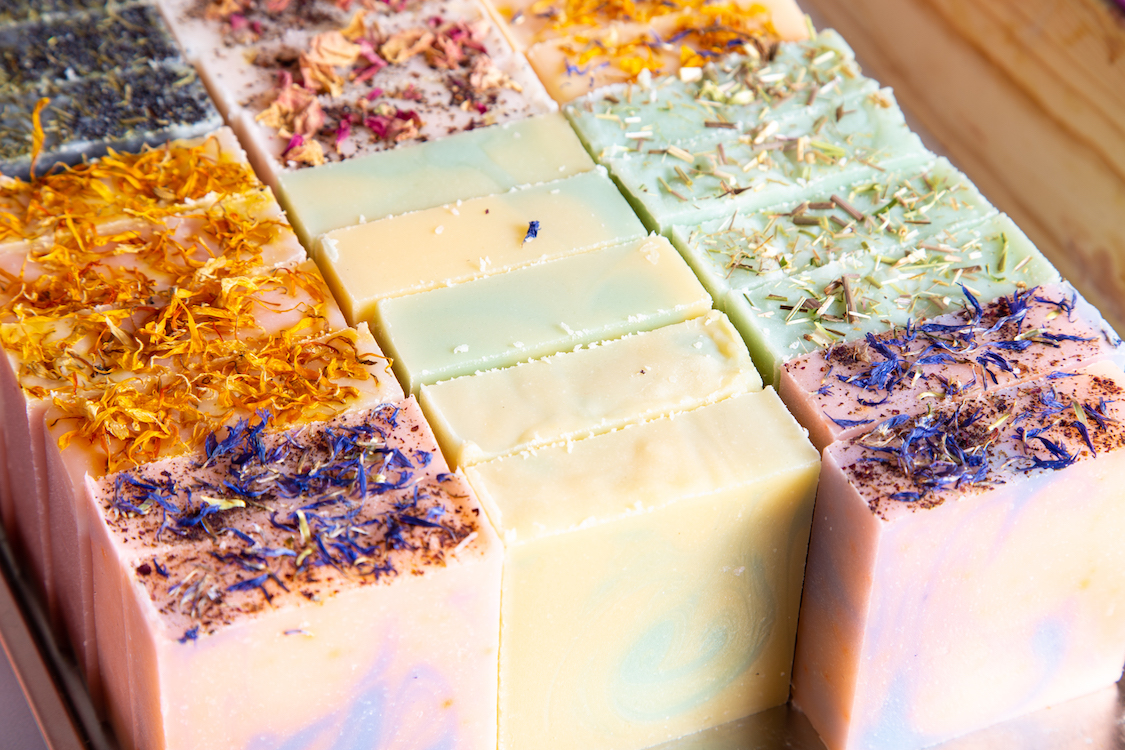Parents and children, culture and commerce, need and want—these natural dichotomies seldom find fertile common ground, particularly wherever they meet within one of the most divisive sociopolitical times in recorded history. However, for Nick Ohitika Najin and his wife Akalei Brown, along with their intrepid and resourceful daughter, Haleakala Brown, these seemingly disparate dicots have bloomed a rare symbiosis atop a shared soil comprised of imminent requirement and unwavering commitment to honoring Native heritage.
Like so many others in the Denver area and beyond, Nick and Akalei felt the powerful press of the pandemic on their jobs and finances. As a Mni Coujou Lakota & Kanaka-Maoli family, their community was hit especially hard. “Before the pandemic, I had a regular full-time job and would sew a bit on the side. That was the early days of Corn Maiden Designs,” shared Akalei. Once Covid hit, Akalei lost her job and it was time to get creative about how to carry on. Corn Maiden suddenly moved front and center.
As an Indigenous Artist Collective, Corn Maiden Designs focuses its wide-spectrum and generative lens primarily on clothing, beadwork and other wearable skills that weave ancient Native threadworks into contemporary creations. This would be impressive and bespoke enough if it were the only thing this industrious family was up to, but it is not by far. Nick and Akalei’s family has now forged two distinct, Indigenous brands that are shaping their slice of the Denver market into something delightful, unique and genuinely inspiring. It is on the second of those, Lakota Body Care, the first Native American soap company in the state of Colorado, that we will focus this first of a two-part series highlighting both noteworthy brands.
Few would disagree that, globally enforced stillness aside, the art of active, curious childhood is becoming a lost one in the technological era. Thankfully, the mind and heart of Haleakala Brown are not of this time and standing apart has helped her stand much taller than many three times her age when it comes to work ethic and an innate sense of possibility. When 9-year-old Haleakala asked for gymnastics lessons during quarantine that simply was not possible within her parents’ tightened budget, Lakota Body Care emerged not just as the clever solution to Haleakala’s quarantine quandary, but as a handmade, holistic hope chest for the post-pandemic age.
Starting with stringing beads for dangly earrings that were then stabilized and secured with hooks by Akalei, Haleakala posted her initial constructions on a very receptive Instagram and was met with instant demand – not just from Akalei’s loyal customers who had always supported Corn Maiden Designs, but from strangers who simply saw the undeniable beauty in items intertwining so many different kinds of love: mother-daughter, ancestral-patriotic and artistic-ambitious.
Taking the roughly $150 she earned from that first parcel of lovingly made jewelry, Haleakala and her mother bought the materials to make melt-and-pour soap, the kind where you can add your own ingredients such as sage or sweetgrass. Their first batch of soap sold out within an hour, and a truly authentic family business was formally forged. Nick, a veteran of the United States Army, was able to leave his job to pursue Lakota Body Care full-time within six months of that first serendipitous sellout and, while both parents are proudly hands-on in the day-to-day operations of the business, Akalei emphasizes, “it was really my daughter’s self-determination that started Lakota Body Care.”
Lakota Body Care is promoting better outward and inward health through energy teas, skin serums, foot soaks and sugar scrubs that marry the sensual to the spiritual. Both Corn Maiden Designs and Lakota Body Care are Native, Veteran and Woman-led companies. They have each positioned themselves to lend ancestral wisdom to younger generations and outside cultures in ways that are sustainable and organic. While it can be difficult for some to feel good about spending on self-care in a time when monetary constraints are being so monumentally felt around the world, when the purchases in question house so many vital threads of underserved American voices and life-saving attitudes about what we all owe the overarching ecosystems that support our lives, it becomes less about indulgence and more about introspective inclusion.
While the growing volume of conversations around sustainability and fair use of resources in popular culture may seem novel to many, Native American societies of every stripe have always been deeply entrenched in a unique connection not just to the historical ground of our country itself but to a genealogical background that is philosophically rooted in respect for the natural world. Akalei sees Lakota Body Care’s immediate success as being utterly open and welcoming to any interested party, however:
“I do think what we do is a natural outcropping of our background and that anyone who is interested in that kind of awareness can tap into that. We even attract a certain kind of customer, people that are more green and sustainable. Also, just people that like Native culture tend to want to support Native businesses.”
Expressing profound gratitude at being part of the kind of progressively inclusive atmosphere that Denver is known for, Akalei also points out that Lakota Body Care came about during a national Renaissance for Native businesses that saw increases in Indigenous-run enterprises in nearly every state. There exists a tremendous sense of connection amongst Native business communities no matter anyone’s tribal affiliation, and information about opportunities and events is readily shared between groups. Akalei acknowledges conspicuous and meaningful support from the Oglala Sioux Tribe and, in particular, their COVID-19 Response Initiative Office with regard to Lakota Body Care.
With Denver’s geographic placement lending it so automatically to Native proximity, the Mile High City has been largely receptive to both the merchandise and the message in Lakota Body Care. Now, Nick and Akalei are actively seeking resources for local and national expansion. Haleakala will be 11 in November and she is still brimming with new and fabulous ideas that beg a bigger and bigger forum. Having been inexplicably denied all conceivable manner of small-business grants that directly aim to serve their niche, Nick and Akalei are hoping to connect with a business advisor or other partner with the kind of practical and fiscal experience that can help them responsibly and knowledgeably grow.
Denver-based investors or potential partners are eagerly encouraged to reach out directly as even the use of a brick-and-mortar space could exponentially improve Lakota Body Care’s customer reach within the local community. Akalei notes:
“We would love to be able to meet any interested customers or potential partners who are interested in what we are doing, and we are greatly looking forward to displaying our products in such a special environment.”
Please look for Part II of “ “The Native American Herbalists Next Door” featuring our in-depth chat with Nick Ohitika Najin of Lakota Body Care on the ethos and deeper meaning behind his family’s Indigenous brands in October.
All photography by Jason Sinn.
Editor’s Note: Updated on September 20, 2022 to correct spelling of source’s name.


